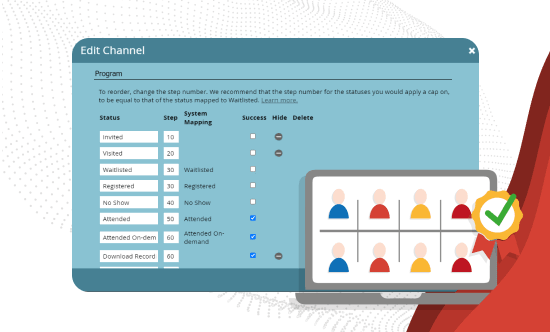Understanding The Talking Future of Lead Segmentation
Overview
Lead segmentation is a crucial aspect of any marketing campaign. By dividing potential customers into distinct groups based on shared characteristics, businesses can target their marketing efforts more effectively and achieve better results – it’s that simple.
In today's rapidly changing business landscape, advancements in technology – like machine learning (ML) – are beginning to impact lead segmentation in exciting ways, as Josh Arrington, Kapturall Partner & Chief Marketing Technology Officer, explains.
Advancements in machine learning are beginning to revolutionize the way we segment leads. By analyzing large amounts of data, machine learning algorithms can identify patterns and insights in moments that a human analyst couldn’t achieve in a lifetime. This results in more accurate and effective lead segmentation – and, if applied correctly, higher conversion rates. One example of this is the use of predictive lead scoring. By using machine learning algorithms to analyze past data, businesses can identify the characteristics of high-value leads. This information can then be used to prioritize leads and allocate resources accordingly, resulting in a more efficient and effective marketing campaign. Another example of the role of machine learning in lead segmentation is the use of natural language processing (NLP) to analyze customer interactions. By analyzing customer conversations, businesses can identify patterns in language and sentiment, which can be used to create more targeted marketing campaigns. ML can also be used to analyze the relative success of any particular marketing effort by looking at current and historic data and inferring the reasons for varying levels of campaign success. The more information that you feed a learning model, the more effective it can be in assessing that data, as it simply has more information to draw from in each subsequent interaction. That means the value of ML tools compounds over time – just the same as how people with more experience become more effective in their roles. It’s important to note, however, that technology alone is not enough. The success of any marketing campaign, and its review, still relies on understanding your audience and creating targeted messaging that resonates with them. Machine learning is a tool that can assist with this, but businesses must still rely on human expertise to ensure their marketing efforts are effective. And, if you ever need any proof of that, just check out how an ML learned to flip pancakes. As technology continues to evolve, it’s clear that lead segmentation will only become more important. With advancements in machine learning, businesses will be able to identify more granular and accurate segments, resulting in more effective marketing campaigns and higher revenue. Automation and ML can be valuable tools in the segmentation process, but they must be used in combination with human creativity and intuition. By continuously refining and improving their segmentation strategies, and pairing them with tech, businesses can create more targeted and effective campaigns that resonate with their audience and drive growth.The Role Of Machine Learning In Lead Segmentation
Looking To The Future
SIGN UP FOR OUR NEWSLETTER
Josh Arrington
Maketo Champion & CMTO
Marketing technology consultant & full stack developer specializing in marketing automation, strategy and highly effective campaign execution. Recently named Marketo Champion by Adobe. Over 18 years of experience working with companies to identify the right mix of marketing technologies and putting them to work with profitable purpose.


